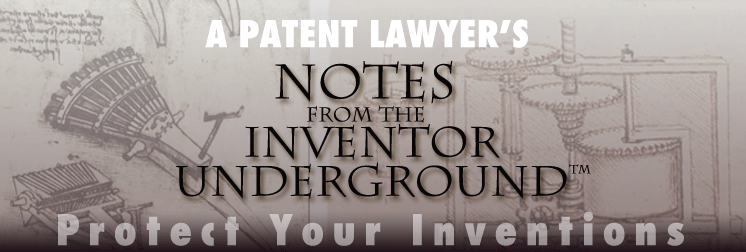
Patent Reform: Differences Between the Senate and House Bills and What Patent Reform Means to Inventors
Patent and Technology trial lawyer Stan Gibson discusses what a final patent reform bill may look like.
Under discussion for years with many different proposals that never made it through committee hearings, patent reform now appears more likely than ever. With the passage of a patent reform bill by the United States Senate with near unanimity and a bill under consideration by the United States House of Representatives, the question of patent reform is no longer "if" but "when" — and, more importantly, what will the final bill look like and how will it impact inventors. Comparing the Senate bill and the proposed House bill that is still under significant debate, some of the meaningful changes are likely to be a move from "first to invent" to "first to file" for patent applications, new and expanded participation by third parties in the prosecution of patent applications and re-examinations, limitations on false marking lawsuits and restrictions and special rules for litigating business method patents, with the latter the most controversial and likely contentious provision between the Senate and the House proposals.
Turning to the move from "first to invent" to "first to file," it appears likely that any patent reform bill will have this change as both the Senate and House proposals (with some differences for business method patents and patents that are the result of government funding) contain a provision for "first to file." This change will put the United States patent system in line with the majority of other countries that currently use a "first to file" approach to determine who is the first inventor. Obviously, this is a significant change in that it will require inventors to file their patent applications at the earliest possible date or risk losing patent rights to another inventor who files first. As a result, we are likely to see an increase in the filing of provisional applications and a greater emphasis on inventors seeking to get their applications filed as soon as possible.
The Senate bill also modifies the Patent Act by including new ways for third parties to challenge pending or issued patents. These include pre-issuance third-party submissions, third-party requested post-grant review and inter parties post-grant review. Currently, there is no way for a third party to challenge a patent application that has not yet issued based on prior art. The Senate bill also would allow an inter party examination if "there is a reasonable likelihood that the petitioner would prevail with respect to at least 1 of the claims challenged in the petition." The House bill under discussion earlier retained the current level of review, permitting review if "a substantial new question of patentability exists," but there appears to be recent movement in the House to adopt the standard proposed by the Senate. The House bill also expands the likelihood of a stay for inter party re-examination requests.
The Senate bill also contains a provision that would severely restrict the filing of false marking lawsuits. Indeed, the Senate bill eliminates false marking lawsuits unless they are initiated by the government or are filed by a competitor that can show it has been or continues to be injured by the false marking. The proposal made by the House would also create a three-year safe harbor after a patent expires.
The Senate and House bills also contain provisions addressing business method patents, but the House bill goes much further than the Senate. In particular, the House Bill would require patent holders to file patent infringement litigation over business method patents in a jurisdiction where the defendant has a regular and established place of business. The House bill would also allow immediate appeals to the Federal Circuit for de novo review if a motion to stay pending re-examination were denied. The House bill would also permit attorneys fees to the prevailing party in actions for infringement of a business method patent.
The bottom line is that patent reform is more likely than ever and it is highly likely that patent reform will pass. When patent reform does pass, it will change the U.S. patent system to a "first to file" and will also make it easier for third parties to challenge patents both before and after they have issued. It is also appears, pending outcome of the final legislation, that business method patents will undergo increased scrutiny that will make them harder to obtain and harder to enforce.
To view a representative list of Stan’s patent and technology cases, click here.
 Los Angeles Real Estate Litigation Lawyer Jeffer Mangels & Mitchell LLP Home
Los Angeles Real Estate Litigation Lawyer Jeffer Mangels & Mitchell LLP Home

